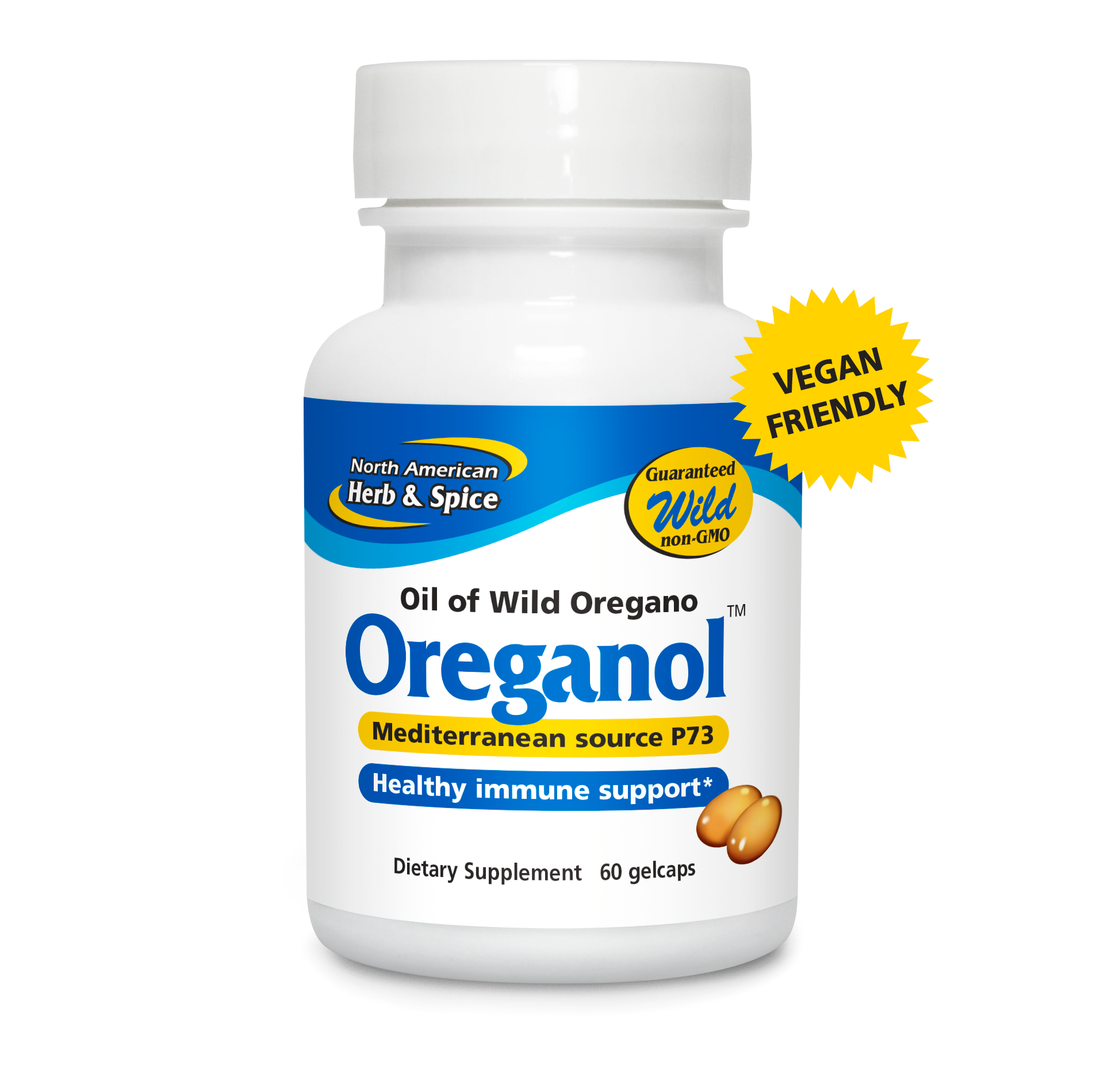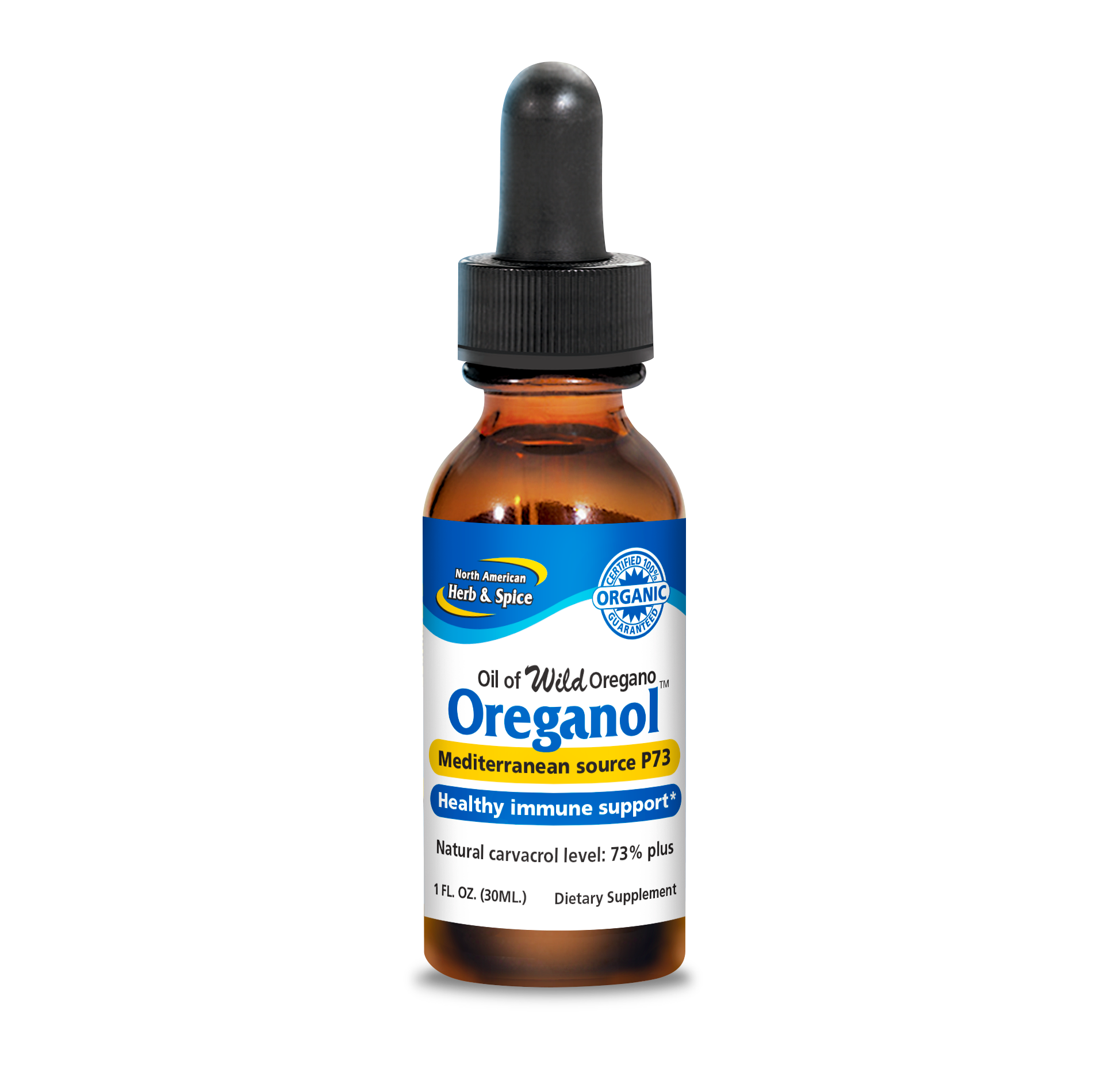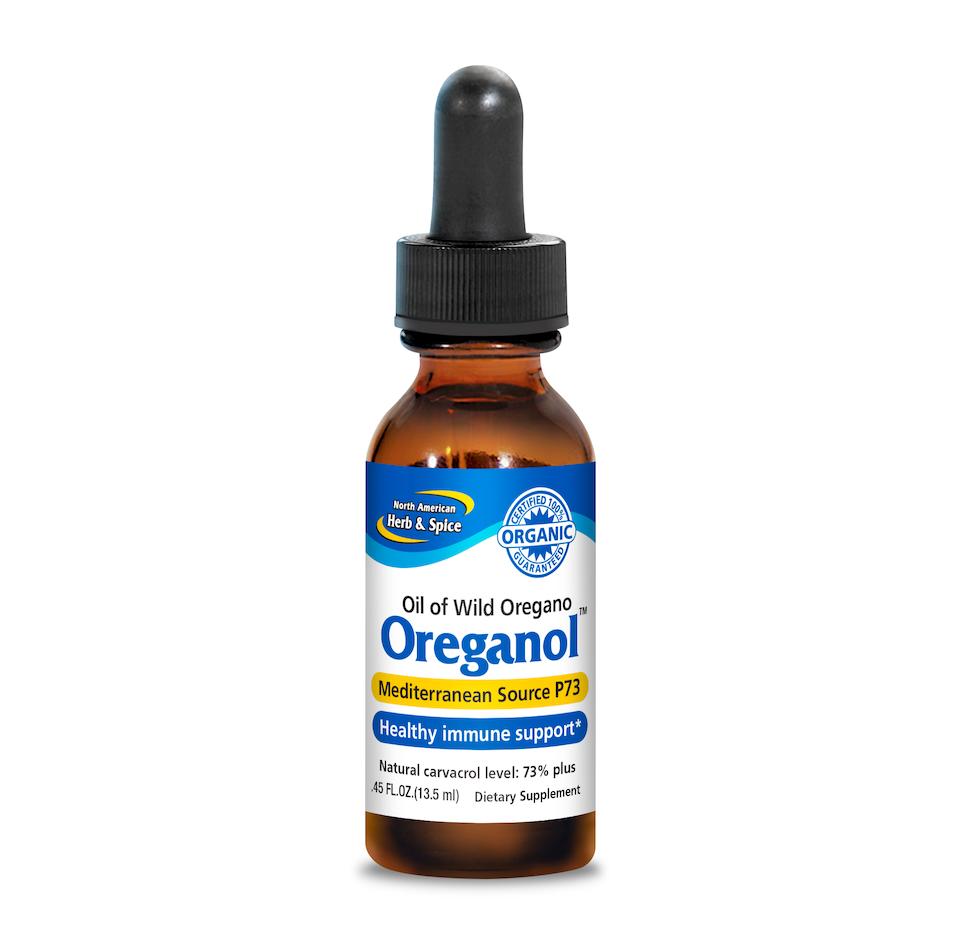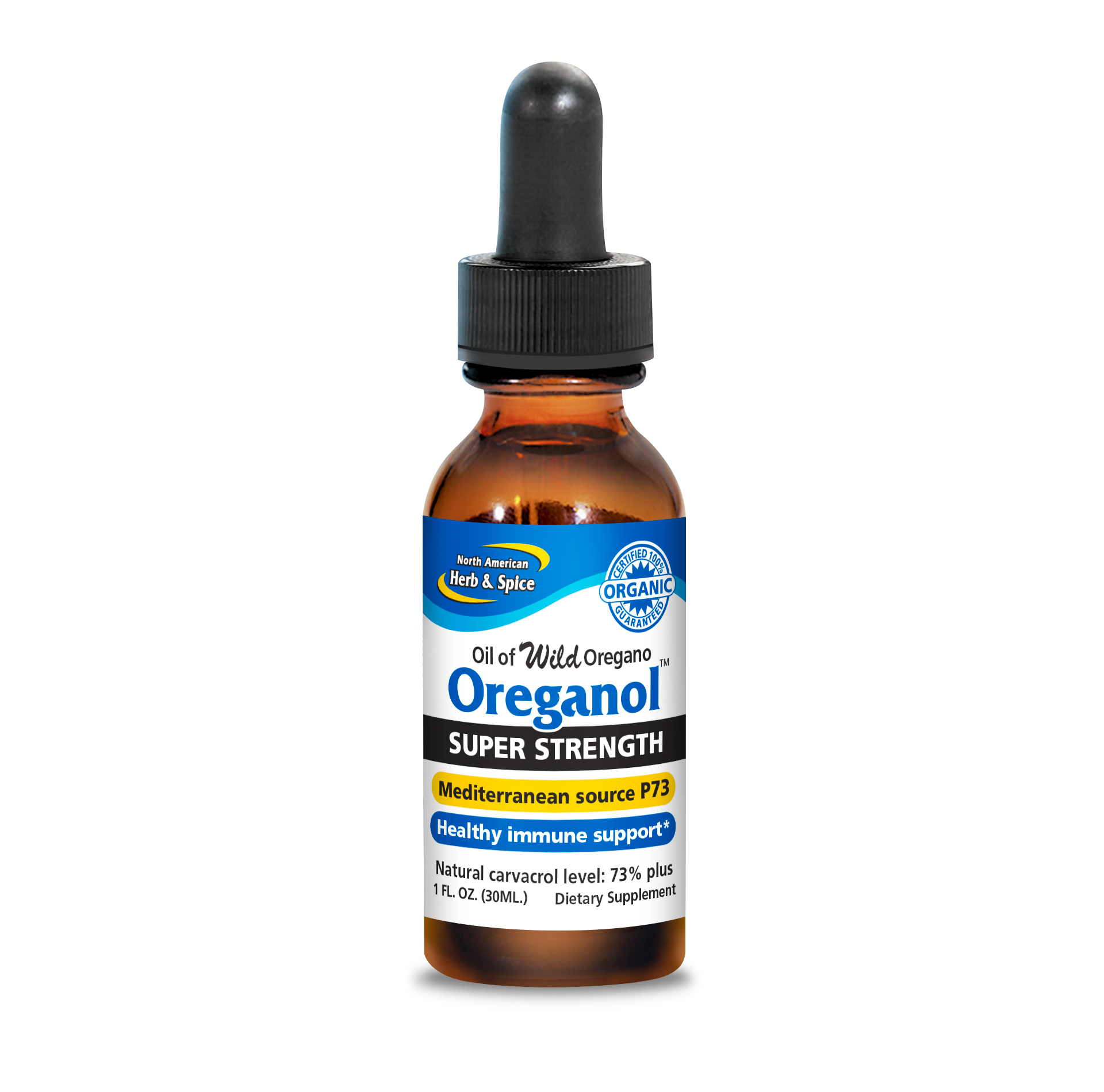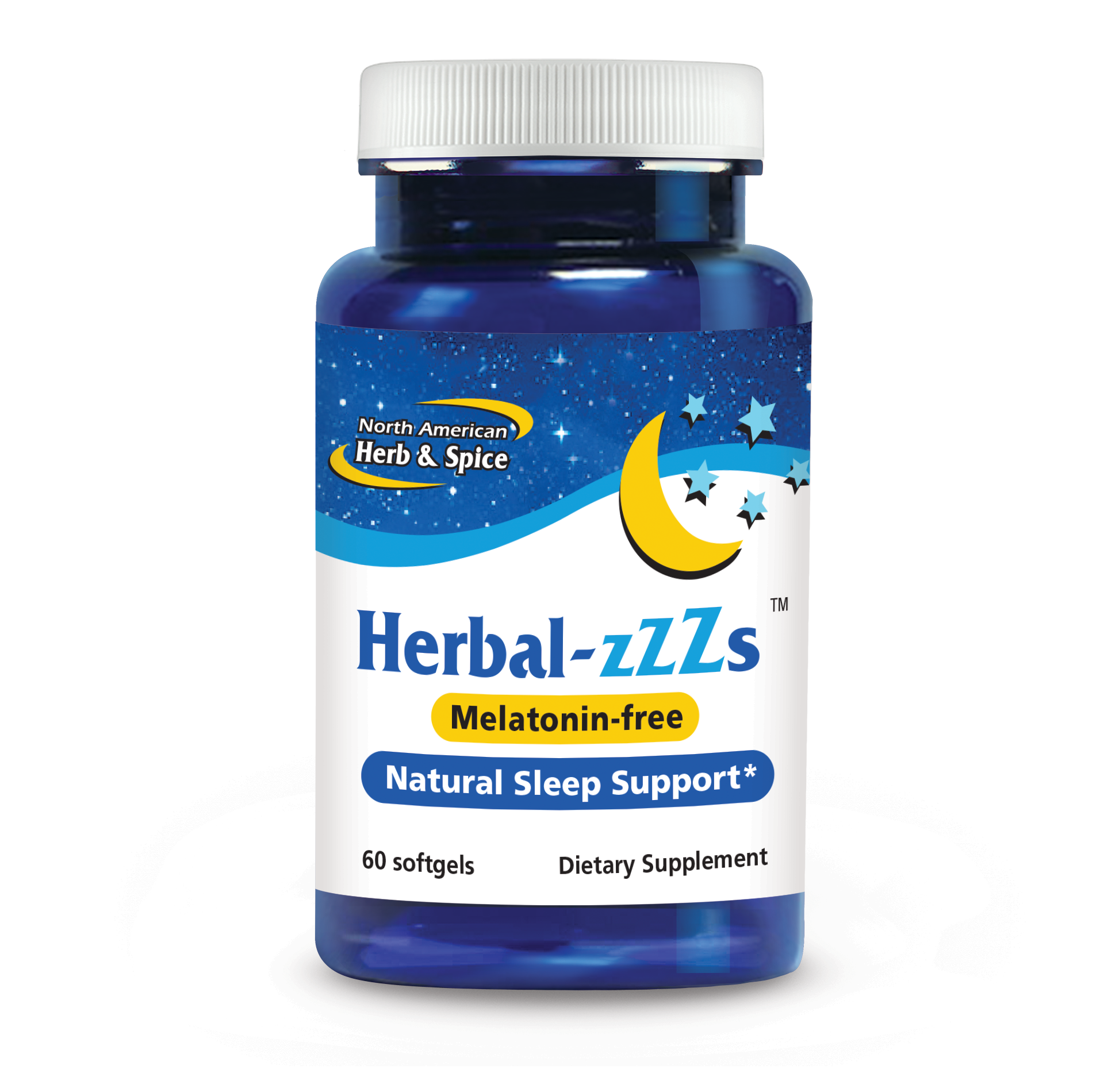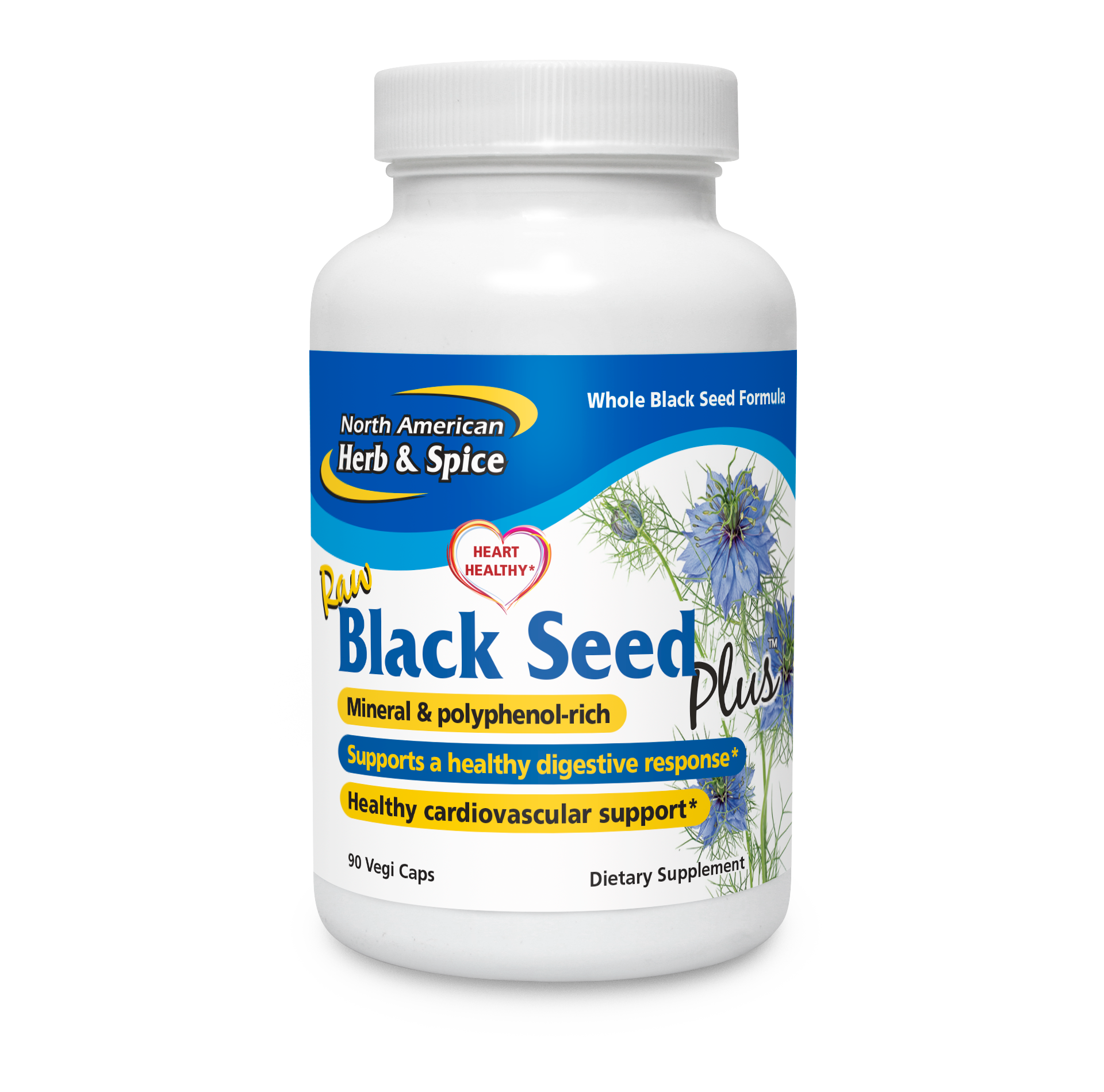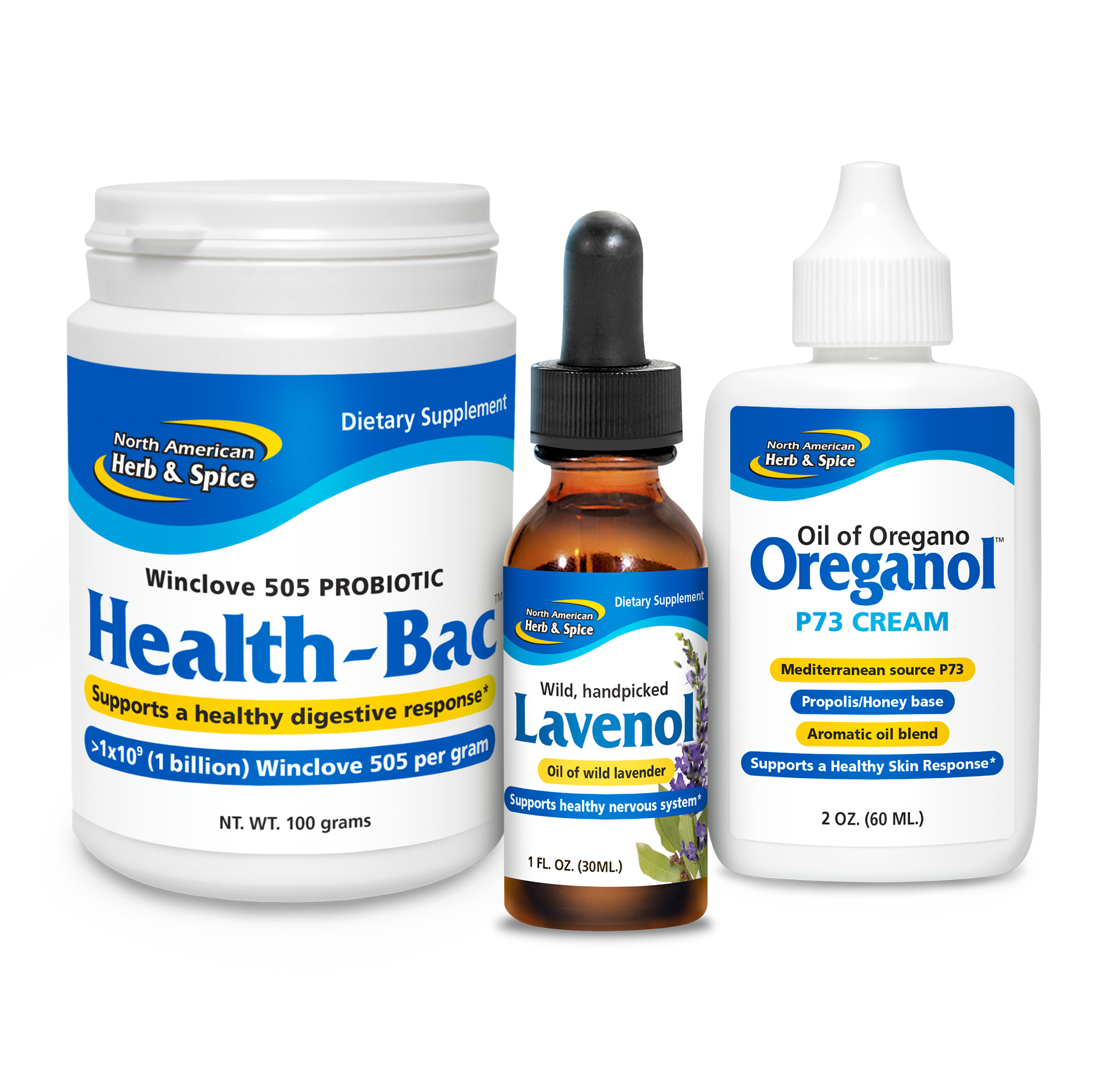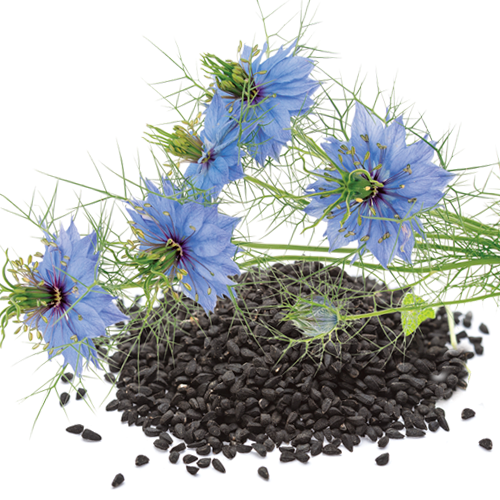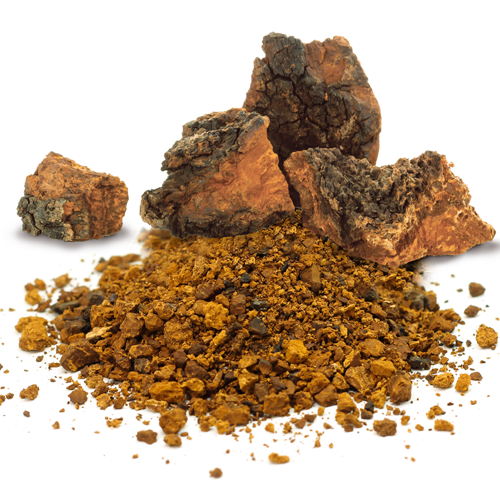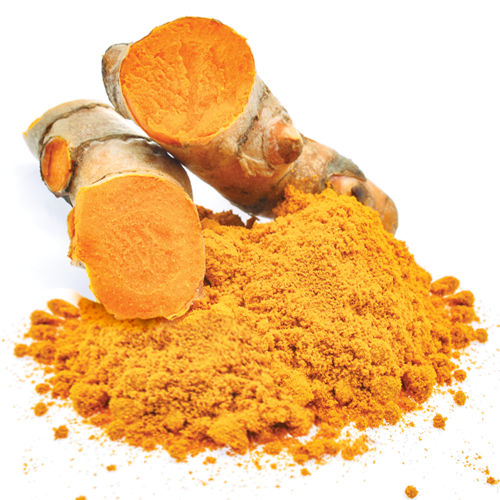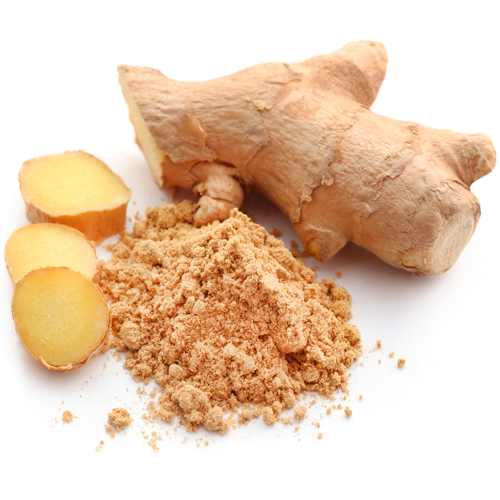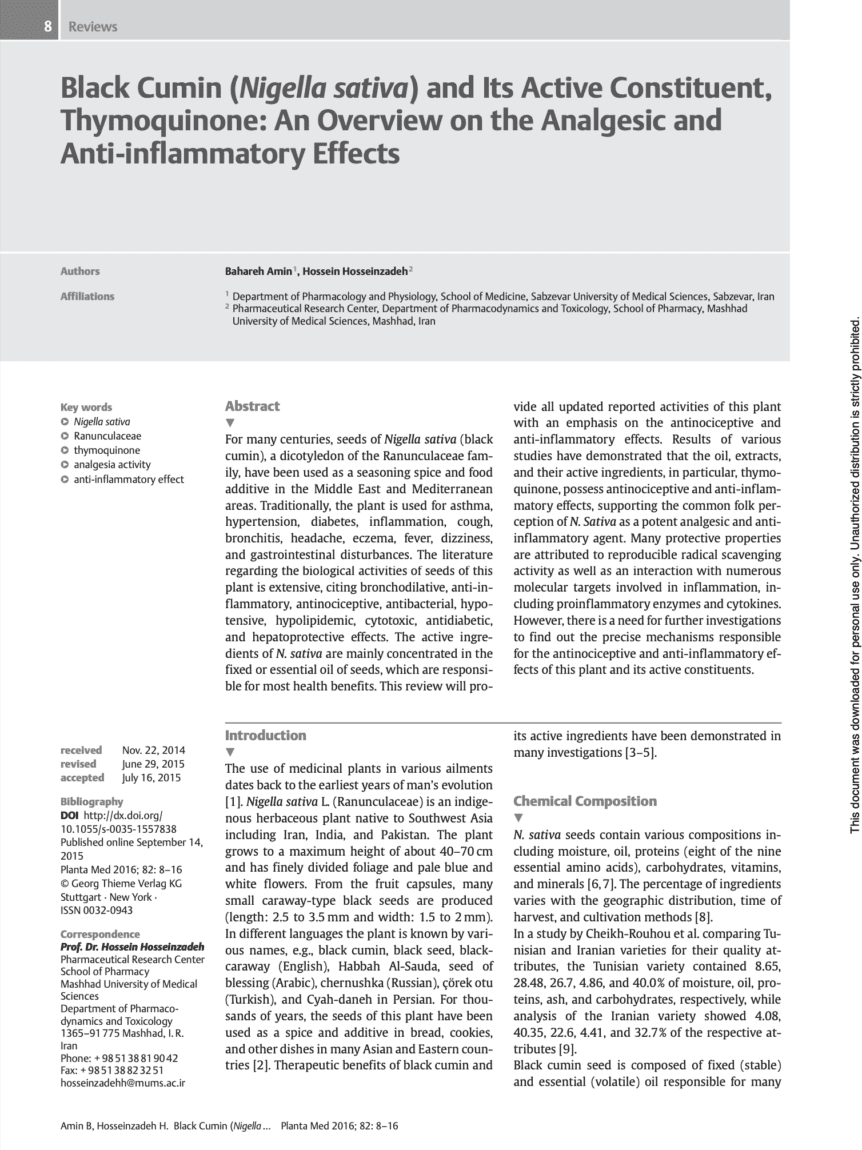
Black Cumin (Nigella sativa) and Its Active Constituent, Thymoquinone: An Overview on the Analgesic and Anti-inflammatory Effects
For many centuries, seeds of Nigella sativa (black cumin), a dicotyledon of the Ranunculaceae family, have been used as a seasoning spice and food additive in the Middle East and Mediterranean areas. Traditionally, the plant is used for asthma, hypertension, diabetes, inflammation, cough, bronchitis, headache, eczema, fever, dizziness, and gastrointestinal disturbances. The literature regarding the biological activities of seeds of this plant is extensive, citing bronchodilative, anti-in- flammatory, antinociceptive, antibacterial, hypotensive, hypolipidemic, cytotoxic, antidiabetic, and hepatoprotective effects. The active ingredients of N. sativa are mainly concentrated in the fixed or essential oil of seeds, which are responsible for most health benefits. This review will provide all updated reported activities of this plant with an emphasis on the antinociceptive and anti-inflammatory effects. Results of various studies have demonstrated that the oil, extracts, and their active ingredients, in particular, thymoquinone, possess antinociceptive and anti-inflammatory effects, supporting the common folk perception of N. Sativa as a potent analgesic and anti- inflammatory agent. Many protective properties are attributed to reproducible radical scavenging activity as well as an interaction with numerous molecular targets involved in inflammation, including proinflammatory enzymes and cytokines. However, there is a need for further investigations to find out the precise mechanisms responsible for the antinociceptive and anti-inflammatory effects of this plant and its active constituents.

